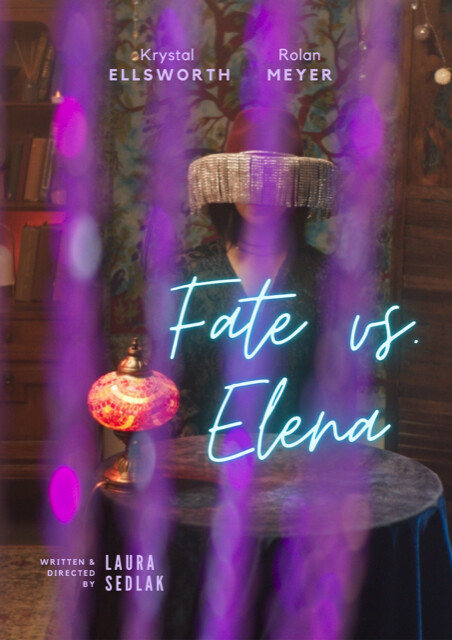WRITER AND DIRECTOR OF
"FATE VS. ELENA"
The film explores the idea of destiny and whether our actions can change the course of our lives. Can you discuss how this theme is explored in the characters throughout the narrative and any philosophical questions it raises?
The question of what guides our life – fate or free will – is fascinating, I think, because it deals with the mechanics of our very existence, and because the variety of answers you might receive tends to be based on belief systems and experiences rather than scientific fact. I interviewed several people on the subject and everyone had a different if rather firm stance and specific arguments supporting their theories, many of which surprised me. This multitude is showcased, in so much as a short film allows, via the characters we encounter in Fate vs. Elena. The film isn't trying to answer the age old question though, but rather explore comedically how and why we come to believe what we believe, whether we're empowered or stifled by it, and maybe most importantly, how open we are to being wrong.
